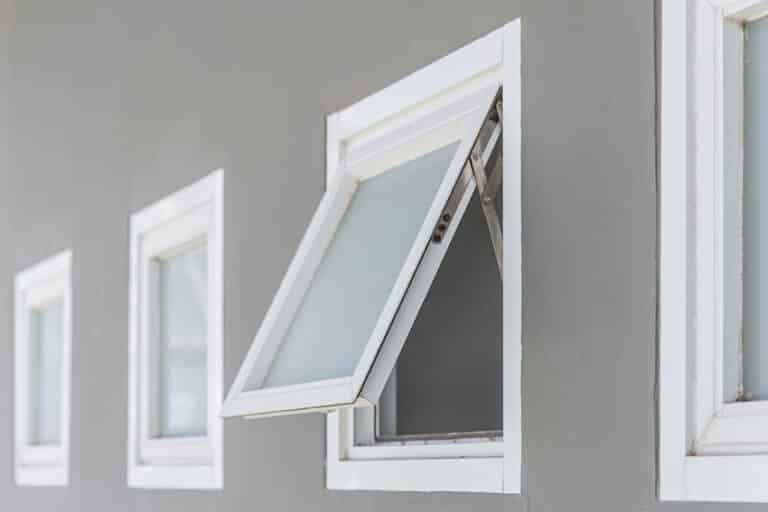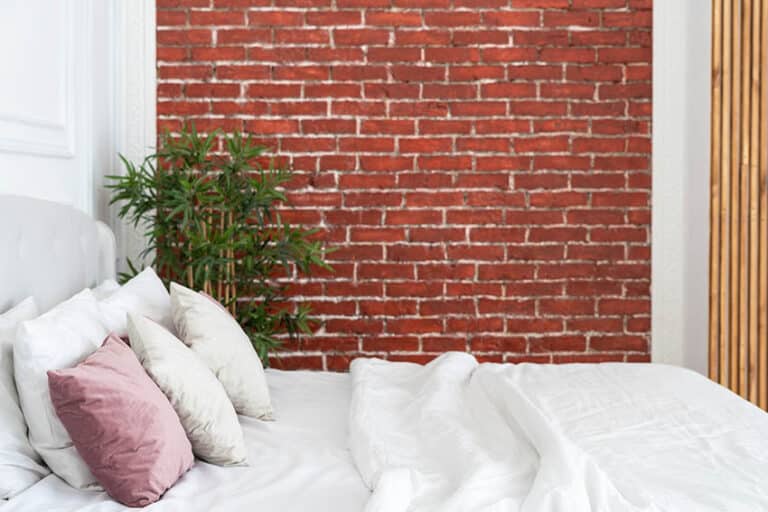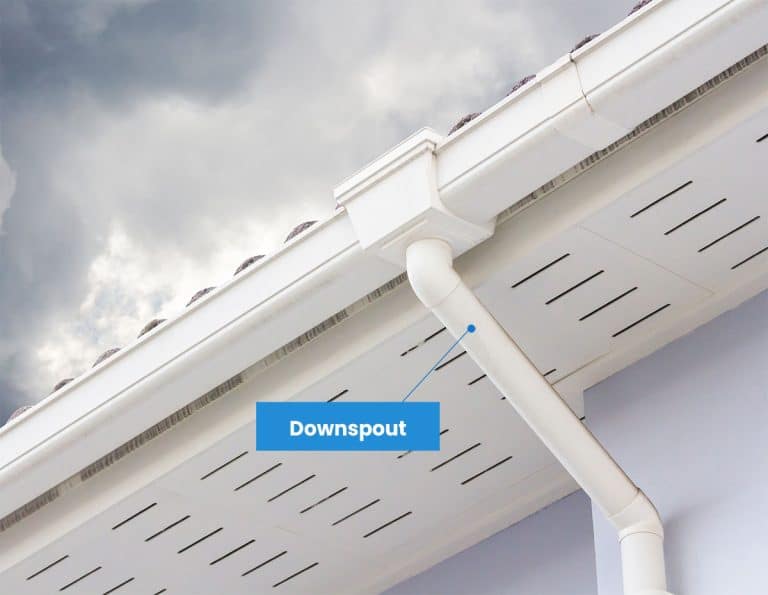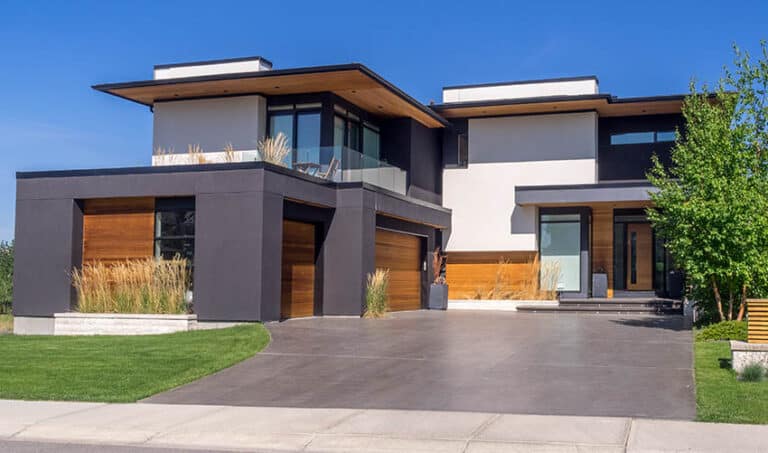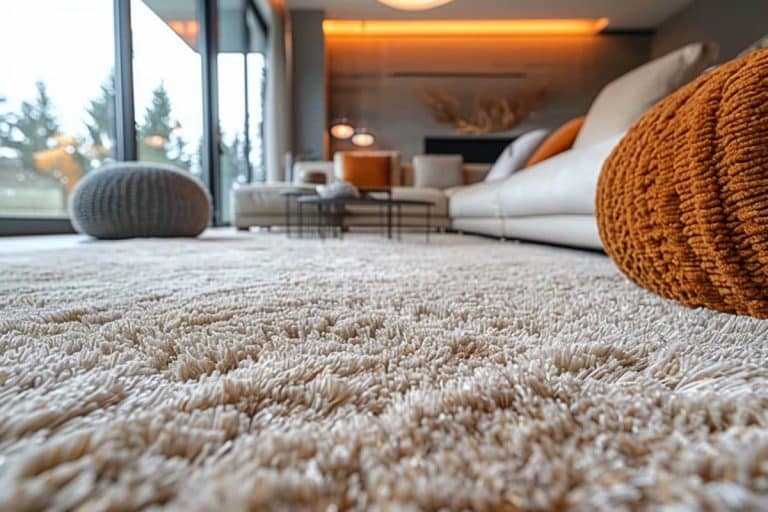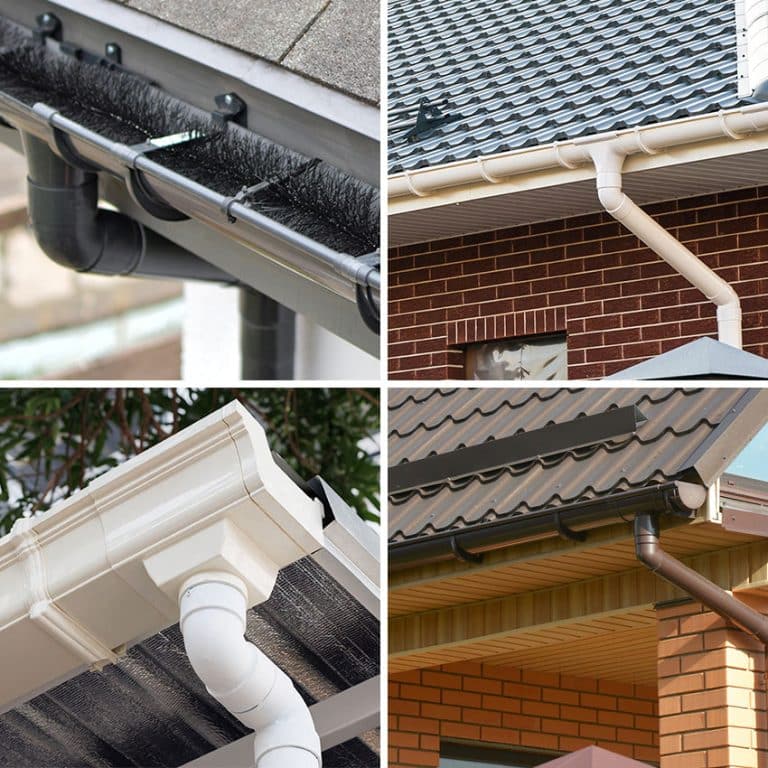Wood vs Vinyl Windows (Differences & Comparison Guide)
Comparison guide for wood vs vinyl windows including their pros and cons, appearance, durability, costs, and window maintenance tips.
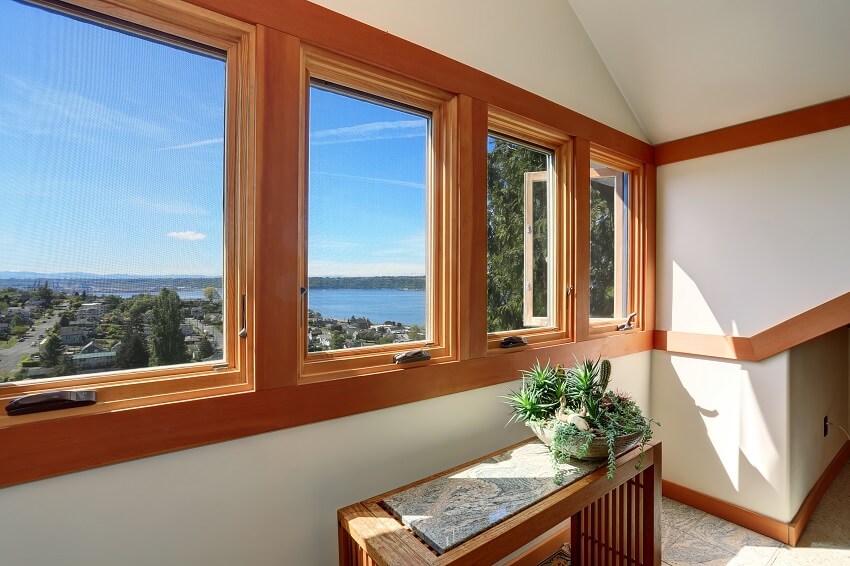
We’ll compare the benefits and drawbacks of the two most common window frame materials, vinyl and wood, to help you get started. Is it true that wood windows are superior to vinyl windows? What are the advantages and disadvantages of vinyl and wood windows?
Wood vs Vinyl Windows Comparisons
Wood Windows are usually wood on the inside (typically pine or Douglas Fir). Exteriors are wood covered with extruded aluminum, PVC, or fiberglass.

Upload a photo and get instant before-and-after room designs.
No design experience needed — join 2.39 million+ happy users.
👉 Try the AI design tool now
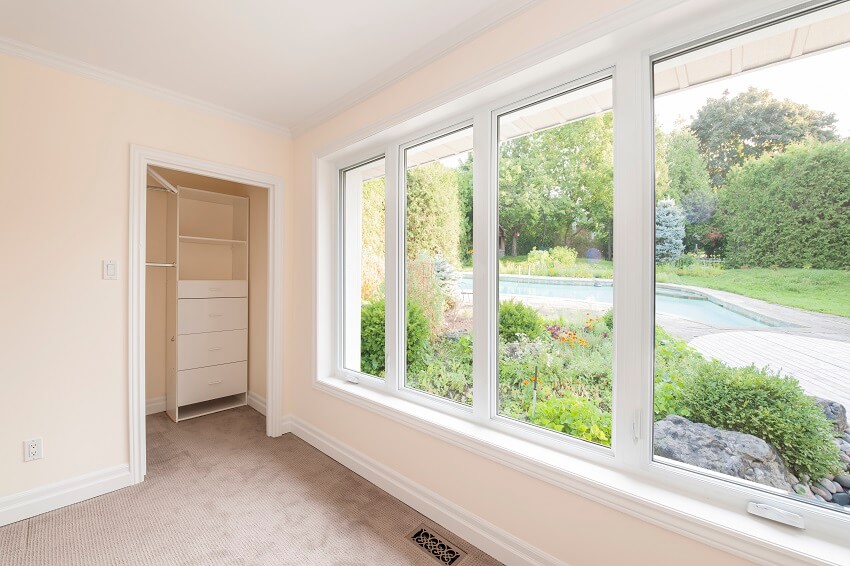
Visit our types of windows ultimate design guide for related content.
Vinyl vs Wood Windows Appearance
Wood is natural, authentic, and timeless. Vinyl and fiberglass windows are designed to resemble wood windows in appearance and feel, though nothing can compare to the authentic look of natural wood.
The organic look can showcase gorgeous graining, knots, and swirls and, when touched with light, has that lovely interplay of warm colors. You can also go with the minimalist shades of black and other plain hues of wood that can be equally beautiful as your grained versions for your contemporary use.
Wood can remain in its natural color, but inside frames are usually stained to get either in matte or gloss finish depending on your preferences.
Exterior cladding, which involves covering the wooden frames outside the house with a different material, such as aluminum or vinyl, is another popular feature with wood windows.
This helps protect the window from harsh weather and other outdoor elements while also ensuring that the window’s interior remains in good condition. Exterior cladding also helps to keep the color and quality of your wood windows from fading.
Overall, many would agree that wood windows win over your vinyl windows when it comes to aesthetics.
Vinyl windows, meanwhile, usually come in white and other light colors. Manufacturers have traditionally strived to achieve rich, dark colors that do not fade. Today, now more appealing than they were in the past, thanks to advancements in frame and color.
Like aluminum windows, vinyl windows could be custom-made with many colors, textures, sizes, and panes to choose from. A disadvantage, though, is that you cannot paint the surface with any other color.
In Summary:
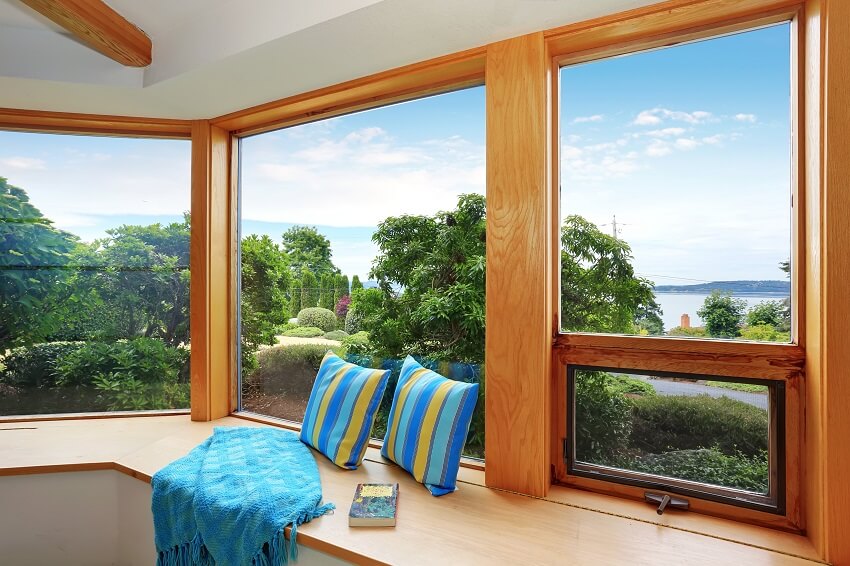
• More customizable, paintable, and stainable options are available.
• The vast majority of people consider this to be a lovely and timeless option.
• Its hardware and color can be easily be changed.
• A variety of species is available for a natural appearance.
Vinyl:
• The basic white and tan colors and finishes are now available in a wider range of colors and finishes.
• Wood grain laminate is an option.
• It can’t be painted.
• New colors and finishes may cost more.
Wood vs PVC Windows Durability & Length Of Life
Durability is a hotly debated topic when it comes to these products. Wood will last longer, which makes it more durable in that sense. But vinyl will not respond to environmental conditions as readily and is more durable throughout its shorter lifetime.
If properly sealed, modern wood windows don’t actually crack and are incredibly durable, capable of withstanding significant impact for long periods of time.
Wood has the benefit of lasting much longer than almost any other material. Although pricey at the start, the investment makes up in the long run since replacing old wood windows does not need to be done as often as constructing other substances.
It is possible to see fine wooden frames and windows and doors used for over 100s years still in top quality condition. Many clients have even commented that a wooden mount looks better as they age, similar to fine wine.
Wood:
Pros: Extremely durable and can last an average of 30+ years.
Cons: A material that wears and needs sealing and maintenance in order to keep up durability and appearance.
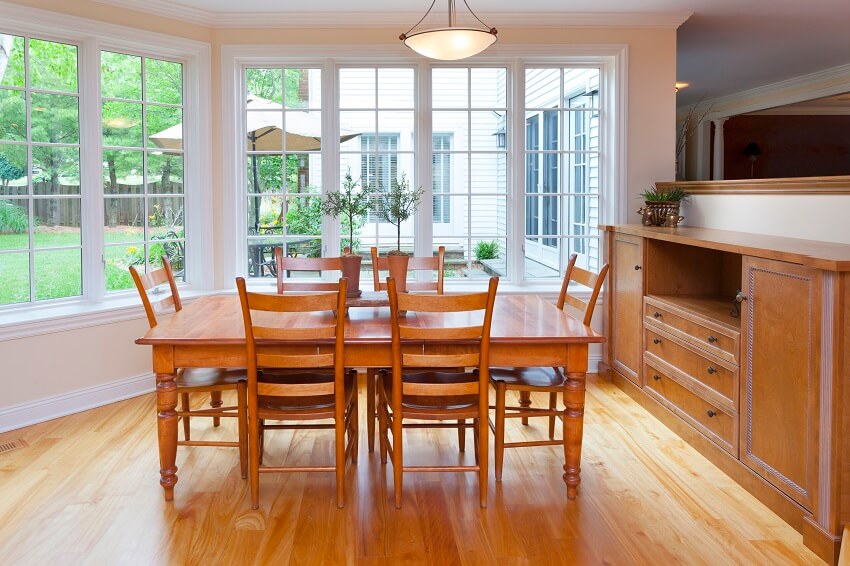
Pros: Won’t warp, rot, or rust, and it does not need sealing or extensive maintenance.
Cons: Has a typical lifespan of 15 to 20 years.
Windows Comparison for Energy Efficiency
Double and triple-pane windows are available in vinyl and wood windows. The additional panes will improve the energy efficiency of your home. You can also use argon gas to clean your windows – it’s odorless and safe!
Because it is denser than air and reflects heat, argon gas is an excellent insulator. Thus, argon gas windows will help you save money on your utility bills by keeping heat and air in your home.
Vinyl windows have a number of benefits over wood windows, including their frame. A vinyl window’s frame is foam-filled to improve your home’s energy efficiency even more.
This foam filler will trap heat or air in your home and protect you from the elements using argon gas. As a result, your home will be comfortable all year.
If properly maintained, you’ll notice that wood expands and contracts a lot less than other materials during temperature fluctuations. This property is essential to protect from sealing failure in the window design and air-leaks.
But overall, both have excellent insulating capabilities. Vinyl is a poor temperature conductor. Vinyl maintains a constant temperature because there is no metal to conduct hot and cold. Wood-framed windows are also effective at preventing the transmission of cold or heat from the outdoors.
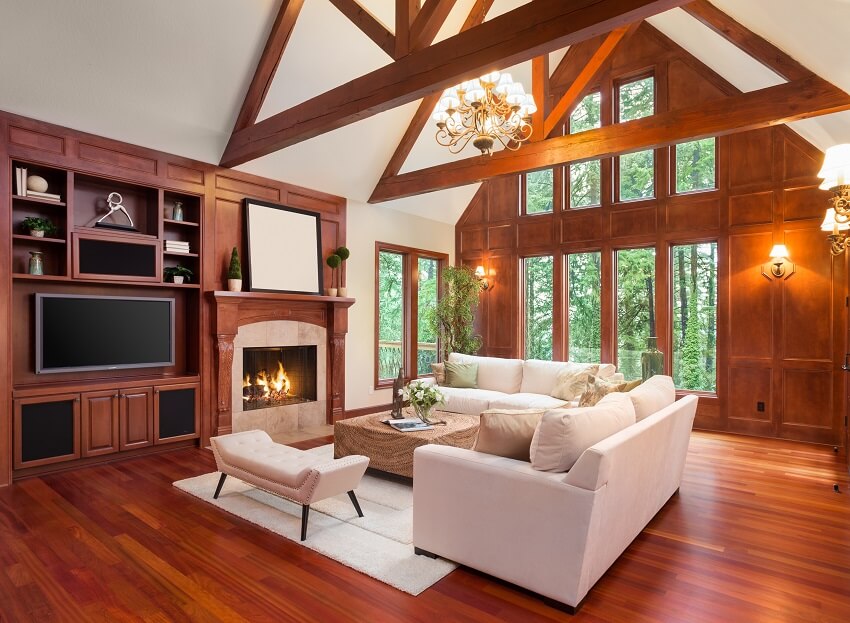
Pro: One of the most effective window materials for overall insulation and energy efficiency. Heat and cold transmission are completely blocked.
Cons: If damaged by weather, rot, or general wear and tear, any gaps that result could allow heat and cold to pass through.
Vinyl:
Pro: It is a good insulator and does not conduct heat or cold. Foam-filled frames also help with insulation.
Cons: Hollow-core frames allow for a small amount of temperature exchange.
Read more on our guide to tinted house windows pros and cons for a more energy-efficient window design guide for your home.
Polymer Windows vs Natural Wood Maintenance
Wood windows can be difficult to maintain. They’ll need to be stained and painted every 2-3 years. That sounds like a nightmare that could be quite costly. This is especially true in areas where the rain, snow, and winds put them to the test on a regular basis.
If this year is particularly bad, those 2-3 years could come even sooner. Vinyl windows, on the other hand, hold up well in the harsh weather year after year.
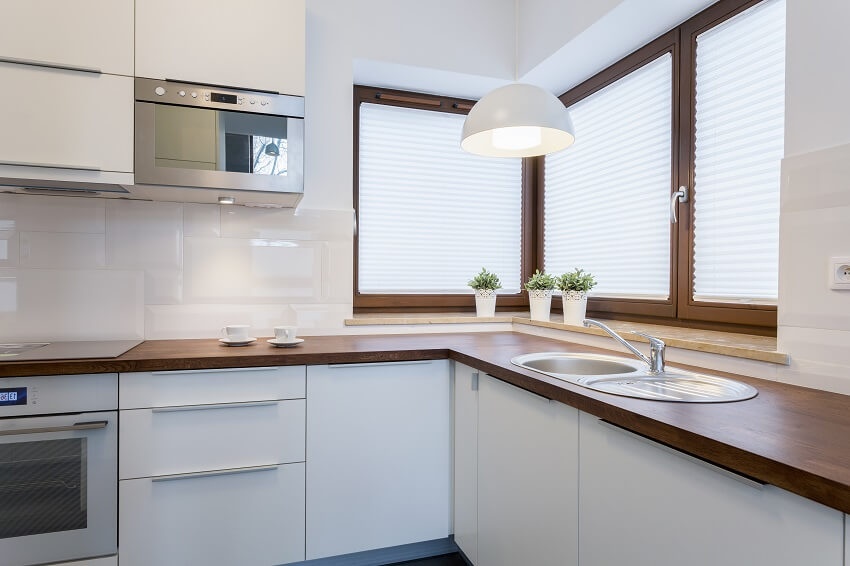
Wood is a bug magnet. They seek out dark, moist environments to call home. Termites, carpenter ants, and other pests are all common problems with wood windows.
They’re also difficult to get rid of. To be sure they’re gone, you’ll need to hire an exterminator. That’s not to mention the damage they’ll do to your wood windows by eating them.
Get vinyl windows instead of bug screens to avoid the hassle and expense of bug removal. Because bugs and mites aren’t attracted to vinyl, they won’t live in your windows. You’ll be able to say goodbye to any bug infestation issues.
Wooden Windows are Prone to Warping and Rot. Wood absorbs water over time and begins to swell. This swelling could lead to problems like warping and rotting.
Once this happens, your windows will no longer look good, not function properly, and become a breeding ground for bugs and mites.
With vinyl windows, you can completely avoid this problem. Rain showers won’t be a problem because they don’t absorb water like wood so that they won’t be harmed by years of heavy rain and snow.
Vinyl windows are incredibly simple to keep clean.
Aside from not having to paint, stain, or worry about bugs, vinyl windows are incredibly simple to maintain. Cleaning is simple – a quick vacuum and window washing every couple of weeks is all that is required. It’s never been easier to maintain a window.
Overall, vinyl windows win over your wood windows when it comes to their maintenance.
Wood:
• More upkeep is required.
• Every 3-4 years, it must be repainted or stained.
• Weather and exposure to the elements are more likely to cause damage.
• Pest damage is more likely to occur.
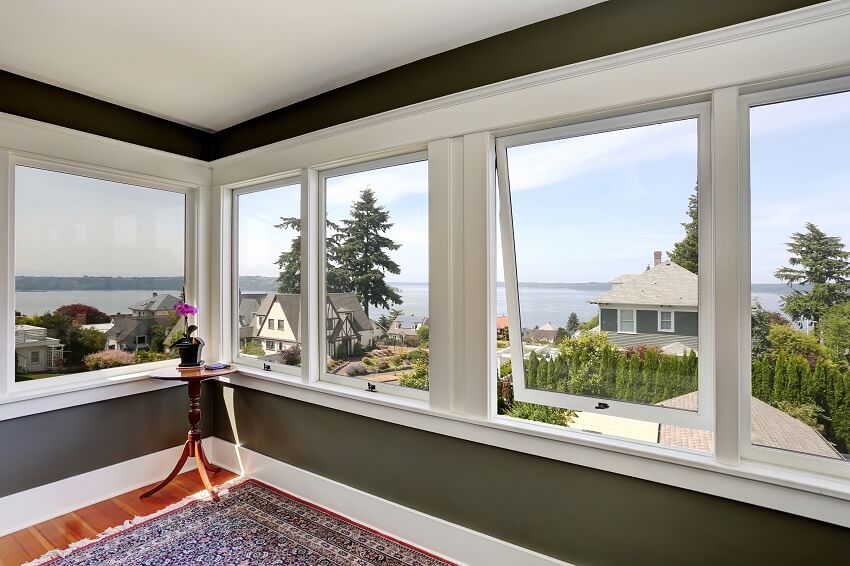
• It doesn’t require a lot of upkeep.
• There’s no need to repaint or stain it; wash it once a year.
• There will be no resealing.
• It won’t corrode, warp, or rot.
• Weather-resistant.
Installation Value
When it comes to return of investment, natural wood has an ROI of 69.5%, while vinyl material has a 74.3 % nationally—source: Remodeling Magazine’s Cost vs. Value Report.
Vintage wood windows are highly sought after by buyers for their resale value, as their beauty adds to the value of a home. The majority of the initial cost of wood windows is likely to be recouped in the long run. But overall, vinyl seems to be a cost-effective option when it comes to choosing a practical window framing material.
Wood Windows vs Vinyl Cost
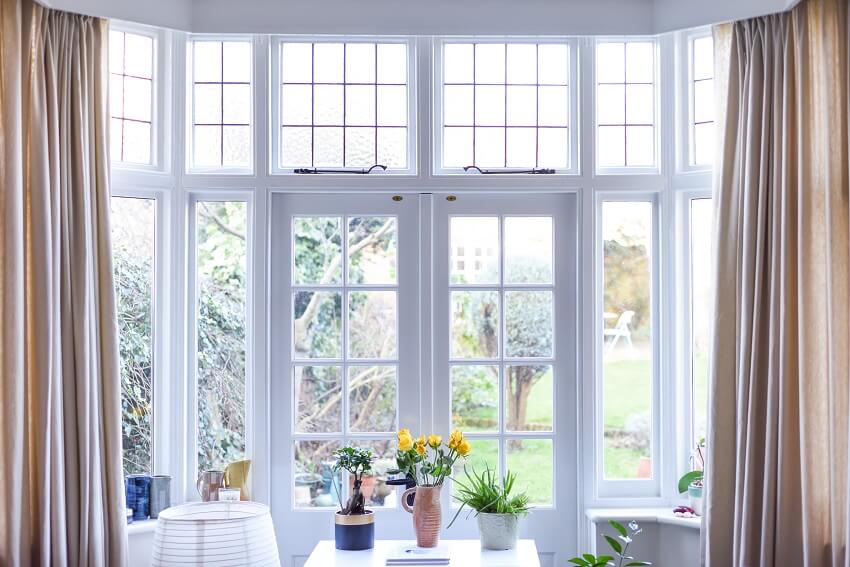
The cost of wood windows is simply higher. Call it the law of supply and demand, the cost of beauty, or the fact that fewer companies manufacture wood windows, but you’ll pay more for wood. For window repair, costs typically range between $150 and $500.
This includes replacing any broken windows. The frame itself can cost anywhere from $200 to $600 to repair. Read on for the facts about these two materials if you want to save money on such repairs.
Why Choose Wood Or Vinyl Windows?
During your next conversation with your neighbors, don’t be put off by the lack of classiness of vinyl windows. They may have purchased wood windows for their aesthetic value, but they also spent more money than you.
Plus, they have to bring out the paint can every few years, whereas you don’t. Vinyl is a practical choice for you if you’re happy with a simple, well-functioning window. For a more related article on vinyl windows, read our comparison guide for vinyl vs fiberglass windows.
You’ve heard the arguments for vinyl, but you can’t bring yourself to put plastic windows in your 1902 Craftsman home. Yes, you will pay more for wood windows, but your historic home will retain its high resale value.
Wood is the best choice for authentic windows. Wood windows are a worthwhile investment that can elevate your home in more ways than one, thanks to their natural insulation, energy efficiency, and durability.
Are Wood Windows Better Than Vinyl?
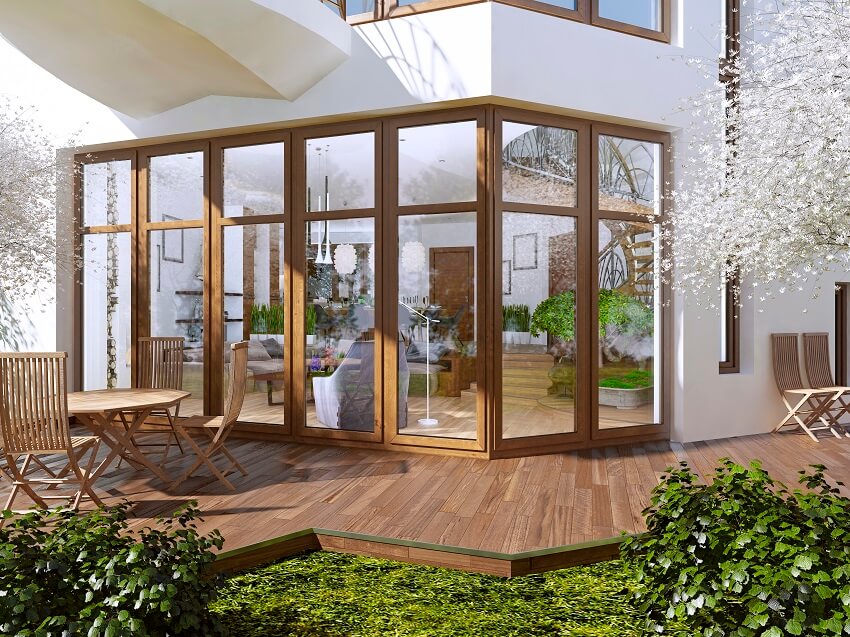
See our guide to standard window sizes here for more related information.

